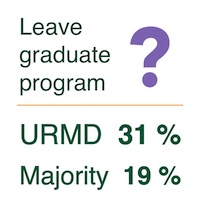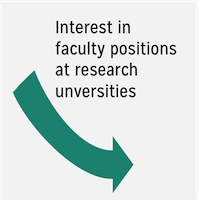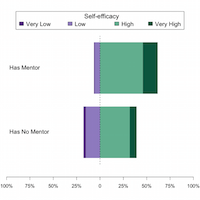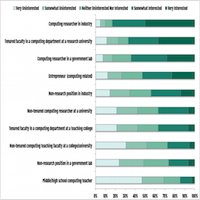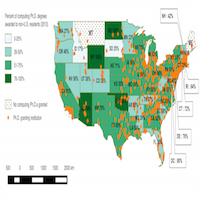
Participants in the CRA Grad Cohort for Underrepresented Minorities + Persons with Disabilities Report Stronger Professional Skills After Attending the Workshop
In 2018, CRA launched the Grad Cohort for Underrepresented Minorities + Persons with Disabilities (Grad Cohort URMD) workshop. CERP found that compared to before the workshop, participants reported stronger knowledge about a number of professional skills after attending Grad Cohort URMD. Applications for the 2019 workshop will open October 2018.



